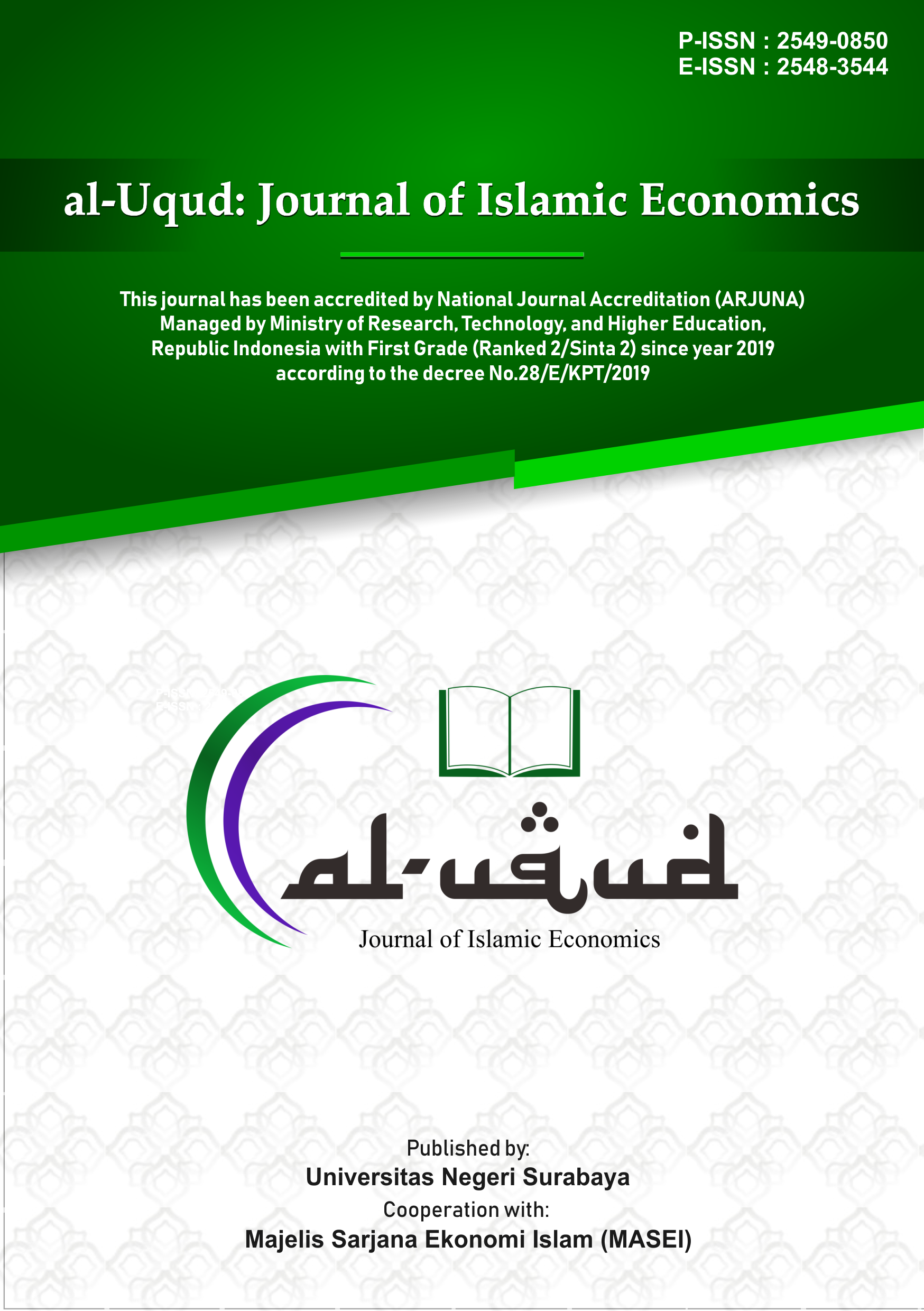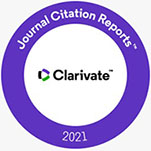MENGEMBANGKAN SIKLUS PENERAPAN SISTEM MANAJEMEN KINERJA BERBASIS KEMASLAHATAN
DOI:
https://doi.org/10.26740/al-uqud.v2n1.p94-120Keywords:
Maslahah performa, Performance management system, MaslahahAbstract
The study aims to develop the cycle of maslahah based performance management system (maslahah performa) implementation. Maslahah performa consists of 6 orientations are: worship orientation, internal process orientation, learning orientation, talent orientation, customer orientation and wealth orientation. The study is conducted through in-depth literature study of previous study related to the concept of maslahah, maslahah based performance management system, the balanced scorecard (BSC) and the quality management system. The study shows that maslahah performa can be applied with the foundation of PDCA cycle that is Plan - Do - Check - Action. Plan is developed into 5 steps: strategic planning, identifying the foundation of maslahah, determining the maslahah behavior, determining measures and agreeing the performance contract. Do is developed into performance implementation. Check is developed into monitoring process. Action is developed into corective and preventive action.
References
Antonio, M. S., Sanrego, Y. D., & Taufiq, M. (2012). An Analysis of Islamic Banking Performance: Maqashid Index Implementation in Indonesia and Jordania. Journal of Islamic Finance, 1(1), 012029.
Bedoui, H. E. (2015). Multidimensional Metrics For Measuring Social And Sustainable Finance Performance. ACRN Oxford Journal of Finance and Risk Perspectives Special Issue of Social and Sustainable Finance, 4(4), 109128.
Bedoui, H. E., & Mansour, W. (2015). Performance and Maqasid al-Shariahs Pentagon-Shaped Ethical Measurement. Sci Eng Ethics, 2015, 555576.
Coyle, D. (2009). The Talent Code, Greatness Isnt Born, Its Grown, Heres How. New York: Bantam Dell.
Firdaus, A. (2012). Pengukuran Kinerja PT. Asuransi Takaful Keluarga Dengan Menggunakan Sistem Pengukuran Kinerja Maslahah Scorecard (Masc). In Call for Paper The 1 st Islamic Economics and Finance Research Forum (ISEFRF) , New Era of Indonesian Islamic Economics and Finance. Pekanbaru: The Indonesian Association of Islamic Economist, Bank Indonesia dan Universitas Islam Negeri Sultan Syarif Kasim.
Firdaus, A., & Yusuf, A. M. (2014). Maslahah Performa, Maslahah Based Organization. In 4th ISRA International Colloquium for Islamic Finance (IICIF 2014), The Role of Islamic Finance in Socio-Economic Development: Ideals and Realities. Lanai Kijang, Kualalumpur, Malaysia , September 3-4, 2014: ISRA-Bank Negara Malaysia.
Kamil, N. M. M. S., Osman-Gani, A., & Ahmad., K. (2012). Spirituality in the Workplace: The Role of Taqwa Towards the Advancement of the Contemporary Organization. Social Science Research Network.
Kaplan, R. S. (2010). Conceptual Foundations of the Balanced Scorecard.
Mohammed, M. ., Razak, D., & Taib, F. (2008). The Performance Measures of Islamic Banking Based on the Maqasid Framework. In The IIUM International Accounting Conference (INTAC IV). Malaysia.
Moullin, M. (2004). Eight Essentials of Performance Measurement. International Journal of Health Care Quality Assurance, 17(3).
OJK. (2017). Statistik Perbankan Syariah.
Pearce, J. A., & Robinson, R. B. J. (2007). Strategic Management, Formulation, Implementation and Control. 10th Ed. New York: McGraw-Hill.
Sekaran, U. (2000). Research Methods for Business: A Skill Business Approach. New York: John Wiley & Sons.
Shaukat, M. (2008). The Recent Financial Growth of Islamic Banks and Their Fulfillments of MaqÄsid Al-SharÄ«˜ah, Gap Analysis. Kualalumpur.
Sokovic, D., Pavletic, K., & Pipan, K. (2010). Quality Improvement Methodologies PDCA Cycle, RADAR Matrix, DMAIC and DFSS. Journal of Achievement in Materials and Manufacturing Engineering, 43(1).
Sudrajat, A., & Sodiq, A. (2016). Analisis Penilaian Kinerja Bank Syariah Berdasarkan Indeks Maqasid Shariah (Studi Kasus pada 9 Bank Umum Syariah di Indonesia Tahun 2015. BISNIS, 4(1).
Tang, J. (2008). The Implementation of Demings System Model to Improve Securty Management: a Case Study. International Journal of Management, 25(1).
Downloads
Published
How to Cite
Issue
Section
License
CC BY 4.0 Abstract views: 2309
,
Abstract views: 2309
, PDF Downloads: 2527
PDF Downloads: 2527








